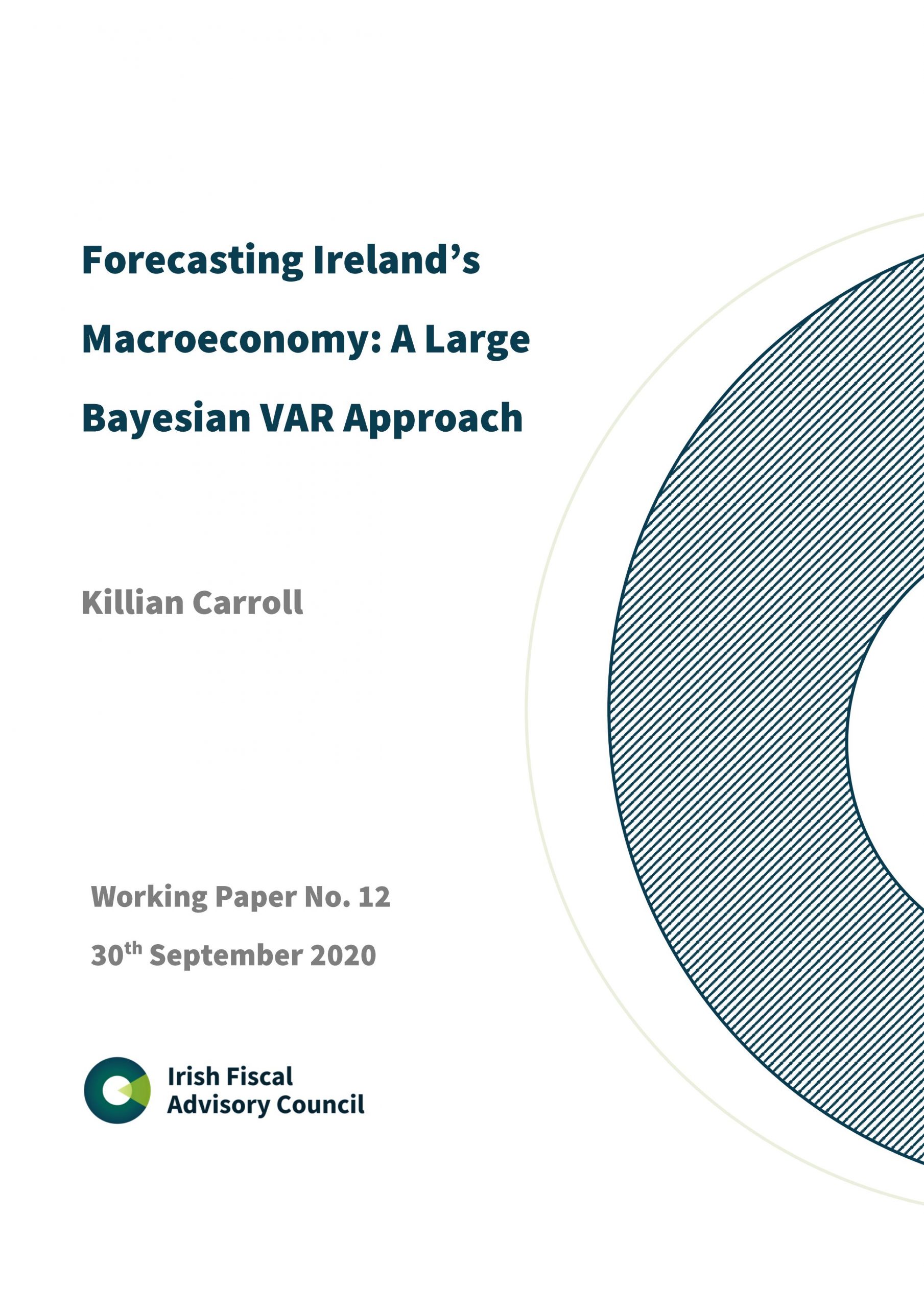This paper develops a forecasting model of the Irish macroeconomy using a large Bayesian Vector Auto-Regression (VAR) model. We show that large Bayesian VARs can be a useful tool in forecasting Ireland’s macroeconomy[1]
Why do forecasts of the economy matter?
Changes in government revenue and expenditure are closely linked to changes in the economy. Sound economic and budgetary policy requires sensible projections of the future path of the economy. Improved projections help estimate how much revenue the government can expect to receive. They also inform how much spending is likely for areas like unemployment benefits. Knowing how much these are likely to change, due to changes in the economy, can help policymakers adjust spending and revenues so as to ensure that the appropriate policy stance is taken.
How is the economy modelled in this paper?
This paper uses Bayesian techniques alongside time series econometrics to model the Irish economy. We build a large Bayesian Vector-Autoregression (VAR) model for forecasting Ireland’s underlying macroeconomy. The approach is able to handle a large number of variables being used by availing of a technique referred to as “Bayesian shrinkage”. Bayesian shrinkage allows us to incorporate more variables in the forecasting model. This helps to better inform the forecasts compared to more conventional VAR models or other smaller models.
What do the results show?
We analyse the performance of the large Bayesian VAR forecasting model by assessing its forecasting performance for 20 macroeconomic variables for Ireland. These include variables such as wages, personal consumption, employment, and underlying domestic demand. To assess its performance, we compare it against other conventional models. We find that the large Bayesian VAR model performs relatively well versus simpler “naïve” models, ARIMA models, smaller VARs, and Factor-Augmented VARs. In particular, we find that the model performs well at forecasting variables that capture the underlying performance of the Irish macroeconomy.

